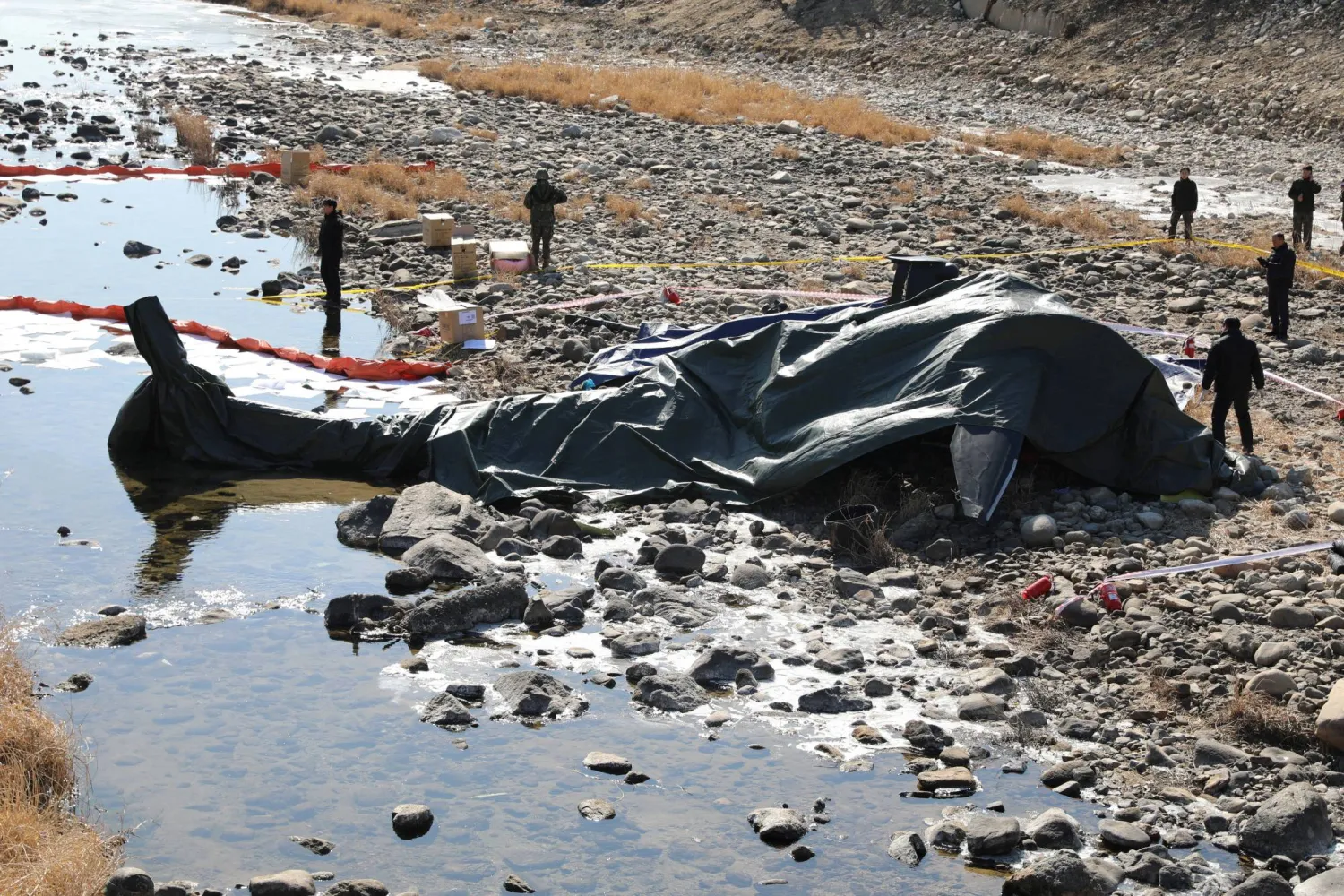An offer of NATO membership to territory under Kyiv’s control would end "the hot stage of the war" in Ukraine, but any proposal to join the military alliance should be extended to all parts of the country that fall under internationally recognized borders, President Volodymyr Zelenskyy said in a broadcast interview.
Zelenskyy’s remarks on Friday signaled a possible way forward to the difficult path Ukraine faces to future NATO membership. At their summit in Washington in July, the 32 members declared Ukraine on an "irreversible" path to membership. However, one obstacle to moving forward has been the view that Ukraine’s borders would need to be clearly demarcated before it could join so that there can be no mistaking where the alliance’s pact of mutual defense would come into effect.
"You can’t give an invitation to just one part of a country," the Ukrainian president said in an excerpt of the interview with Sky News, dubbed by the UK broadcaster. "Why? Because thus you would recognize that Ukraine is only that territory of Ukraine and the other one is Russia."
Under the Ukrainian constitution, Ukraine cannot recognize territory occupied by Russia as Russian.
"So legally, by law, we have no right to recognize the occupied territory as territory of Russia," he said.
Since the start of the war in 2022, Russia has been expending huge amounts of weaponry and human life to make small-but-steady territorial gains to the nearly one-fifth of Ukraine it already controls in east and southern Ukraine.
"If we want to stop the hot stage of the war, we should take under the NATO umbrella the territory of Ukraine that we have under our control. That’s what we need to do, fast. And then Ukraine can get back the other part of its territory diplomatically," he said.
An invitation for Ukraine to join NATO is one key point of Zelenskyy’s "victory plan", which he presented to Western allies and the Ukrainian people in October. The plan is seen as a way for Ukraine to strengthen its hand in any negotiations with Moscow.
Earlier this week, NATO’s new Secretary General Mark Rutte said that the alliance "needs to go further" to support Ukraine in its fight against a Russian invasion. Military aid to Kyiv and steps toward ending the war are expected to be high on the agenda when NATO members' foreign ministers meet in Brussels for a two-day gathering starting on December 3.
However, any decision for Ukraine to join the military alliance would require a lengthier process and the agreement of all member states.
There is also uncertainty as to the foreign policy stance of President-elect Donald Trump. While Trump vowed on the campaign trail to end Russia's invasion of Ukraine in a single day, he has not publicly discussed how this could happen. Trump also announced Wednesday that Keith Kellogg, an 80-year-old, highly decorated retired three-star general, would serve as his special envoy for Ukraine and Russia.
In April, Kellog wrote that "bringing the Russia-Ukraine war to a close will require strong, America First leadership to deliver a peace deal and immediately end the hostilities between the two warring parties."
Meanwhile, during his only campaign debate with Vice President Kamala Harris, Trump twice refused to directly answer a question about whether he wanted Ukraine to win the war — raising concerns that Kyiv could be forced to accept unfavorable terms in any negotiations.
Zelenskyy’s statement comes as Ukraine faces increasing pressure along the 1,000-kilometer (620-mile) frontline. In its latest report, the Washington-based think tank the Institute for the Study of War said Saturday that Russian forces had recently advanced near Kupiansk, in Toretsk, and near Pokrovsk and Velyka Novosilka, a key logistics route for the Ukrainian military.
Ukraine’s air force announced Saturday that the country had come under attack from ten Russian drones, of which eight were shot down over the Kyiv, Cherkasy, Kirovohrad, Dnipropetrovsk, and Kherson regions. One drone returned to Russian-occupied territory, while the final drone disappeared from radar, often a sign of the use of electronic defenses.
Meanwhile, the Russian Defense Ministry said that 11 Ukrainian drones had been shot down by the country’s air defense systems. Both the mayor of Sochi, Andrey Proshunin, and the head of Russia’s Dagestan region, Sergey Melikov, both in Russia’s southwest, said that drones had been destroyed in their regions overnight. No casualties were reported.
On Friday, the Ukrainian president announced a number of changes to military leadership, saying that changes in personnel management were needed to improve the situation on the battlefield.
General Mykhailo Drapatyi, who led the defense of Kharkiv during Russia’s new offensive on Ukraine’s second-largest city this year, was appointed the new head of Ukraine’s Ground Forces. Oleh Apostol was named as the new Deputy Commander-in-Chief responsible for improving military training.
Commander-in-Chief Oleksandr Syrskyi also announced Friday that he would bolster units in Donetsk, Pokrovsk and Kurakhove with additional reserves, ammunition, weapons and military equipment.









